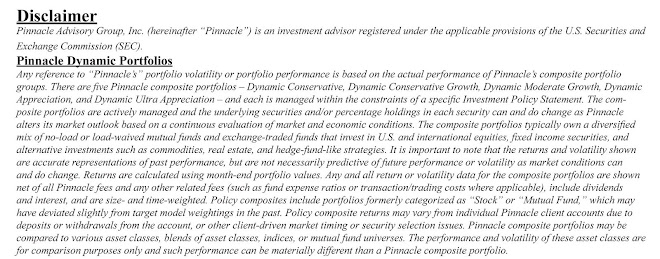Today brought news that five central banks – the Federal Reserve, European Central Bank, Bank of England, Bank of Japan, and Swiss National Bank – have teamed up to provide unlimited short-term U.S. dollar funding to troubled European banks. It was a coordinated policy response designed to calm increasing market concerns about another credit freeze, this time centered in the European banking system. The market reacted positively to the news, with stocks sharply higher globally, the euro rallied, and bonds were down.
While it remains to be seen how much of an impact this program will ultimately have, a strong, globally coordinated policy response is high on the list of “risks” to our current defensive investment stance. For the past year, instead of global coordination, we’ve mostly seen ad hoc, unilateral attempts to combat structural economic problems from various countries and central banks. There has been little in the way of coordination, and somewhat predictably, most of the programs have enjoyed at best only fleeting success.
Today’s policy action is notable for its coordination, but seems designed mostly to address the growing liquidity crisis among European banks. It does nothing about solvency, which is the crux of the problem over there. However, if political leaders in Europe are ever able to put together something meaningful to tackle the solvency issue, while at the same time offering a globally coordinated monetary response, that could be a force powerful enough to spark another big rally in asset prices, and would likely cause us to abandon our current defensive positioning in order to participate. This particular program, while well received today, doesn't seem to be enough to do that on its own.
skip to main |
skip to sidebar
Subscribe via email
Who is Echoing from the Pit
This blog represents the individual opinions of the Investment Team at Pinnacle Advisory Group in Columbia, Maryland
The Investment Team comprises:
Ken Solow, CFP, CLU, ChFC
Rick Vollaro, CPA
Carl Noble, CFA
Sean Dillon
Sauro Locatelli
To learn more about Pinnacle please visit our website at http://www.pinnacleadvisory.com/
The Investment Team comprises:
Ken Solow, CFP, CLU, ChFC
Rick Vollaro, CPA
Carl Noble, CFA
Sean Dillon
Sauro Locatelli
To learn more about Pinnacle please visit our website at http://www.pinnacleadvisory.com/
About Me
- Echoes from the Pit
- Columbia, Maryland, United States
Pinnacle in the News
Blog Archive
-
▼
2011
(169)
-
▼
September
(15)
- The Answer to the Question...
- Commodity Rout Should Provide Relief for Consumers
- Gold is not a Religion
- How to Jump Start the System: See Newton's First Law
- Our Increasing Conviction
- Re-Testing 1100
- Apple as the New Safe Haven? Please.
- Dr. Copper
- Coordinated Policy Action
- Where Could We Be Wrong?
- Dollar Starting to Pay Off
- Fear the Ostrich
- Asking the Wrong Question
- Time to Change the Models?
- Q’s Signal End to Rally?
-
▼
September
(15)

